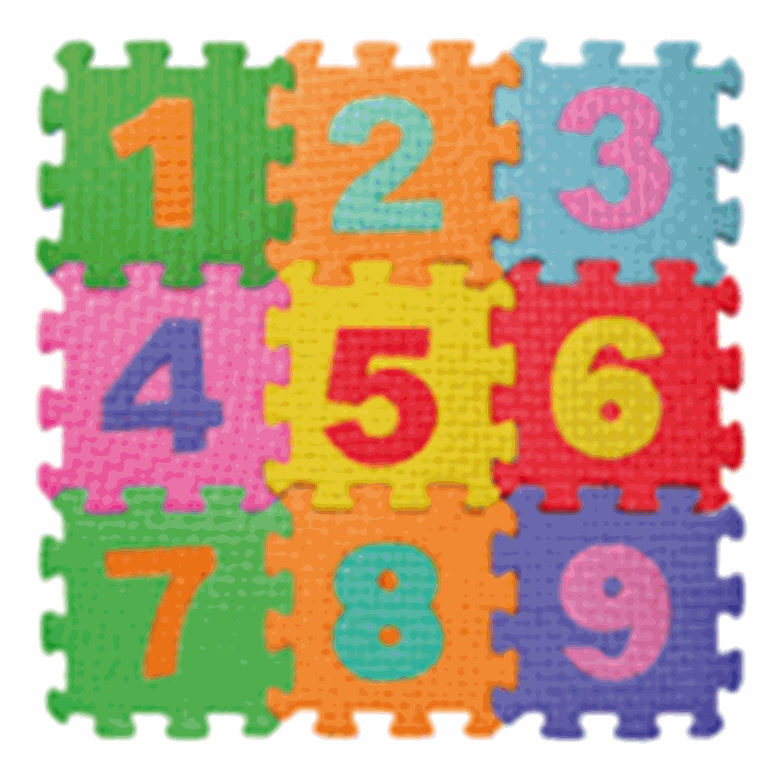Areas of Learning and Development: Specific area: Mathematics
Judith Stevens, principal consultant, Early Learning Consultancy
Friday, April 27, 2012
Judith Stevens explains the changes to Mathematics in the revised EYFS framework

New educational programme
'Mathematics involves providing children with opportunities to develop and improve their skills in counting, understanding and using numbers, calculating simple addition and subtraction problems; and to describe shapes, spaces, and measures.' (Revised Statutory Framework, paragraph 1.6)
The first thing to note is the name change from Problem Solving, Reasoning and Numeracy to Mathematics. This makes sense, as mathematical development is so much more than numeracy, and in an effective early years environment, there are many opportunities for problem-solving and reasoning across the areas of learning and development, not just in maths.
EARLY LEARNING GOALS
What has been removed?
- There are now two aspects for mathematics rather than three. The revised aspects are 'Numbers' (including 'Numbers as labels and for counting' and 'Calculating') and 'Shape, space and measures'.
- 'Numbers' will be perceived by many to have a change in emphasis. There is no explicit mention of 'talk' and vocabulary, with 'begin to use the vocabulary', 'discussion' and 'use language such as ...', removed. The use of 'developing mathematical ideas and methods to solve problems' has also gone.
- 'Shape, space and measures' has less removed, although, again, 'talk about' patterns has gone.
What has been added or moved?
- Some (although not all) aspects of measurement are now listed within 'size, weight and capacity'.
- Distance has been added, as has time, which was previously covered in Knowledge and Understanding of the World.
- The biggest addition is the inclusion of numbers from 1 to 20, rather than to 10, and the reference to explicit examples for problem-solving, such as 'doubling, halving and sharing'. (See 'Essentials for practice' below).
What is missing?
In condensing the aspects and the former early learning goals, the main thing which is missing is clarity, in particular for 'Numbers'. There is no explicit reference to specific mathematical skills in using numbers, such as:
- Say and use number names in order in familiar contexts.
- Count reliably up to ten everyday objects.
- Recognise numerals 1 to 9.
These have been partially pulled together into one unclear sentence: 'children count reliably with numbers from 1 to 20, place them in order and say which number is one more or one less than a given number.' (See 'Essentials for practice'.)
ESSENTIALS FOR PRACTICE
- Maths is, first and foremost, a hands-on, practical and exploratory area of learning.
- Practitioners need to support children's current interests and enthusiasms and build on what they know and can do. If children are interested in doubling, halving and sharing, practitioners should support this, in the same way that fascinations with huge numbers, such as hundreds, thousands and millions, should be supported.
- Children need time and space to consolidate their number knowledge to ten before being pushed into those often tricky 'teens', so practitioners need to be informed by the non-statutory guidance Development Matters.
- Resources should include exciting, stimulating, real objects to explore, count, talk about and move.
- Children need well-planned, appropriate, adult-led activities to challenge their mathematical thinking and to extend their learning. But they also need lots of time to explore all aspects of mathematics independently and frequent daily opportunities to talk about maths and develop their mathematical vocabulary.
EARLY LEARNING GOALS: NEW AND OLD
NEW
Mathematics
Numbers: children count reliably with numbers from 1 to 20, place them in order and say which number is one more or one less than a given number. Using quantities and objects, they add and subtract two single-digit numbers and count on or back to find the answer. They solve problems, including doubling, halving and sharing.
Shape, space and measures: children use everyday language to talk about size, weight, capacity, position, distance, time and money to compare quantities and objects and to solve problems. They recognise, create and describe patterns. They explore characteristics of everyday objects and shapes and use mathematical language to describe them.
OLD
Problem solving, reasoning and numeracy
By the end of the EYFS, children should:
Numbers as labels and for counting
- Say and use number names in order in familiar contexts
- Count reliably up to ten everyday objects
- Recognise numerals 1 to 9
- Use developing mathematical ideas and methods to solve practical problems
Calculating
- In practical activities and discussion, begin to use the vocabulary involved in adding and subtracting
- Use language such as 'more' or 'less' to compare two numbers
- Find one more or one less than a number from one to ten
- Begin to relate addition to combining two groups of objects and subtraction to 'taking away'
Shape, space and measures
- Use language such as 'greater', 'smaller', 'heavier' or 'lighter' to compare quantities
- Talk about, recognise and recreate simple patterns
- Use language such as 'circle' or 'bigger' to describe the shape and size of solids and flat shapes
- Use everyday words to describe position
- Use developing mathematical ideas and methods to solve practical problems
EYFS CONSULTATION FEEDBACK
1st consultation - Do you agree with the early learning goals relating to Maths? Yes (50%), No (15%), Partly (31%) and Not sure (4%)
2nd consultation - Do you think any ELGs are not worded or pitched correctly? Number (38%); shape, space and measures (20%).




